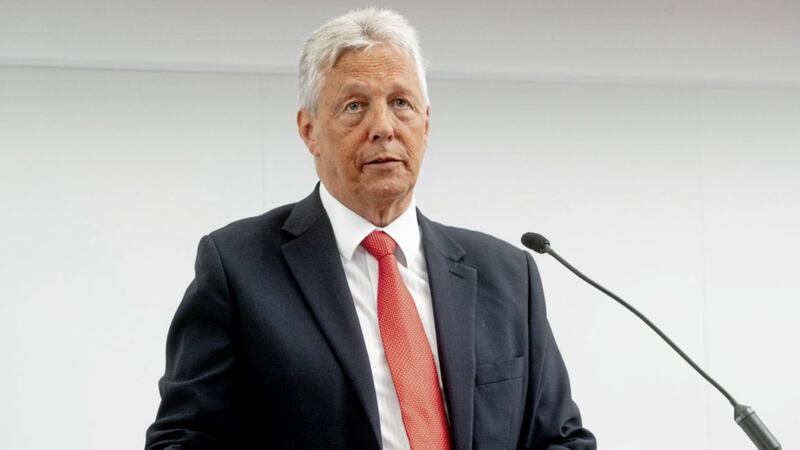The central message of Peter Robinson’s speech at Queen’s University Belfast last week, delivered to the present DUP leadership sitting directly in front of him, is that the party needs to make a major tactical retreat on multiple fronts - chiefly on cultural and social issues that go right to its heart and soul.
Abortion and same-sex marriage seem to have brought the rest of the UK and Ireland to the same loudly-declared conclusion.
There is widespread frustration with the DUP’s failure to get on with it, yet few doubt this shift is possible or would even be particularly traumatic. If the party managed a U-turn on entering government with Sinn Féin, it should be able to horse-trade a couple of sacred cows.
The politics of the past two decades has been defined by such U-turns, exemplified by Sinn Féin’s acceptance of decommissioning, disbandment and policing. There is almost a sense that the peace process consists of parties screaming ‘not a bullet, not an ounce’ over some fundamental and supposedly inviolable point, right up until the principle is suddenly abandoned, defeat is declared a victory, the entire membership and base obediently pivots 180 degrees and nobody ever mentions it again.
However, there is surprisingly little evidence that the DUP and Sinn Féin are similar in this regard. The DUP still tells itself it only entered government with Sinn Féin once it had replaced the Good Friday Agreement with the St Andrews Agreement, although the latter made merely a handful of amendments to the former. Belief in this miracle of transubstantiation runs deeper than presenting defeat as victory. Robinson restated it on the 20th anniversary commemoration of the Good Friday Agreement at Queen's in April - a position as ridiculous as if the Sinn Féin leadership had turned up for its meeting with the chief constable this Monday still claiming not to recognise the PSNI.
Apart from this one heavily-qualified example, the DUP has never had to manage a tactical retreat of any difficulty or significance. In its mind, it is the true undefeated army.
Ian Paisley may have slunk away from numerous positions during the Troubles, among them confrontations he had been instrumental in starting, but these were acts of anti-leadership, taking no responsibility from start to finish and jumping straight from ‘never, never, never’ to never mentioning it again.
For as long as the DUP has led unionism and held devolved office it has known only electoral growth and political success. It got everything it wanted at St Andrews, everything it wanted in the subsequent three-year strand-off over policing and justice and everything it wanted from the three-year welfare reform row leading up to the Fresh Start agreement. It had to give up nothing in return.
When hubris at this finally drove Sinn Féin to bring down Stormont, the DUP was saved from reflection by a fluke Westminster result that allowed it to remain as arrogant as ever.
To a remarkable extent the DUP has never had to swallow its pride, let alone steer itself and its supporters through a painful reversal.
If this seems like a statement of the obvious, it was insufficiently clear to the DUP’s leadership in February when it assumed members and supporters would obediently accept an Irish language act.
No preparations to sell this U-turn were made, producing what Robinson described last week as “a train crash”. It appears that even the DUP had lazily equated itself with Sinn Féin, believing on scant evidence it could turn on a sixpence.
Tellingly, February’s abortive deal still gave the DUP everything else it wanted, including on same-sex marriage.
That issue has now been thrown back into the mix along with abortion - two totemic ‘culture war’ social policies.
What grounds are there to assume the DUP can manage a disciplined retreat on all these fronts?
It has certainly never managed anything like it before. There must be at least a comparable likelihood that the leadership will be ousted, the party will split or the DUP will simply dig its heels in and refuse to budge, whatever the cost to wider politics.
Arlene Foster’s objection to tactical retreat is that once you feed a crocodile it keeps coming back for more - an assessment the party must reassess, having been bitten regardless.
But the pride of the undefeated army is an under-appreciated factor in the DUP’s resistance to change. If there is one evangelical belief it should cling to, it is that pride comes before a fall.
newton@irishnews.com









